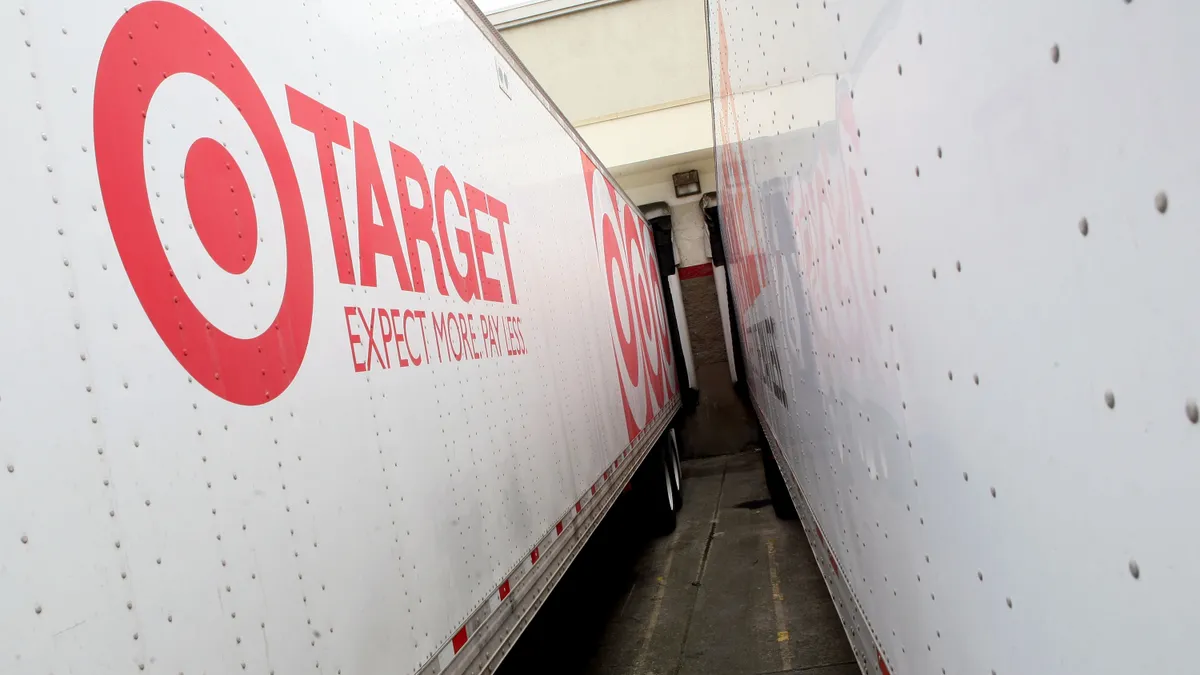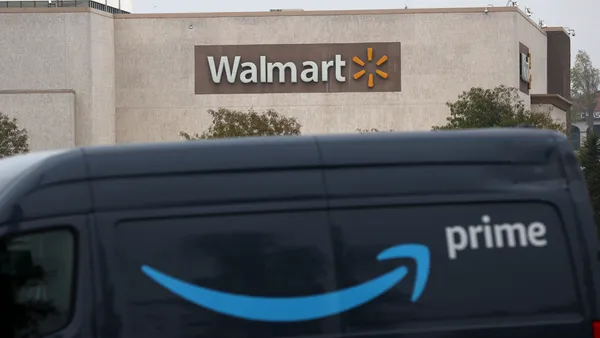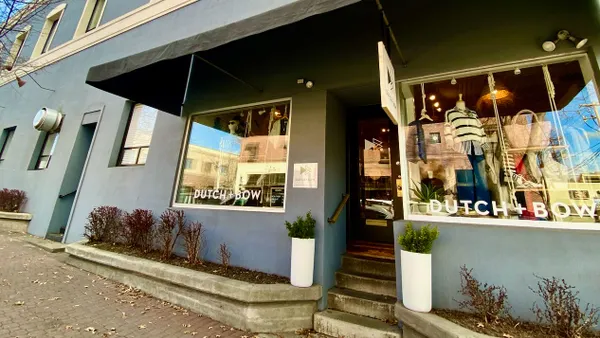Dive Brief:
- The expansion of Target's sortation and distribution center network, which the retailer had previously announced, will rely on multiple acquisitions it has made in recent years, COO John Mulligan said on the company's earnings call Wednesday.
- As it opens up more sortation centers, the locations will use technology from Grand Junction as a way to "optimize the selection of delivery partners," Mulligan said. Target acquired Grand Junction, a software platform that helps retailers figure out the best delivery method and track carrier performance, in 2017.
- The technology Target acquired from Deliv last year will allow it to generate routes for orders to make its Shipt delivery service more efficient, Mulligan said.
Dive Insight:
Target's use of acquired assets highlights the long process of supply chain transformation that the retailer has been undergoing. Each deal became part of a larger plan.
The retailer is investing heavily in its supply chain on either side of its retail locations: new distribution centers to improve replenishment at stores, and new sortation centers to improve order fulfillment for consumers.
In March, Target announced plans to open two distribution centers by the end of 2021, one in Chicago and another in New Jersey. On Wednesday, executives increased that number to four by the end of 2022, but they didn't provide a location for the additional facilities.
"Once these buildings are operating at scale, they'll meaningfully shorten lead times to nearby stores, improving in-stock levels while reducing the need for safety stock in those locations," Mulligan said.
The retailer already has a sortation center open in Minneapolis. It plans to open five more over the next year but didn't disclose the locations.
"Sort centers have long been on our fulfillment roadmap, which we've built through internal development along with small acquisitions," Mulligan said this week.
Acquisitions have been used by multiple retailers as a way to gain access to supply chain assets. Last year, Walmart made a deal to acquire JoyRun, a startup for last-mile delivery. And Amazon has acquired companies over the years — including robotics firms and a customs broker — as it seeks to increase productivity in its operations.
Target's focus on carrier selection and route optimization is an area of growing importance for shippers. A 2019 survey found that 76% of respondents use route or load planning as part of their sustainability efforts. And Amazon recently handed over some of its delivery data to researchers, offering $100,000 to the team that creates a new and improve route planning algorithm.
For Target, it all comes back to optimizing its store-based fulfillment network. In the most recent quarter, 95% of sales were fulfilled by store assets and inventory, CEO Brian Cornell said.
"We can do a lot with the volumes that we've built over the last two years in some of those same-day services, and all of that volume translates to more efficiency opportunity as we continue to squeeze down the per-unit cost to fulfill," CFO Michael Fiddelke said.














